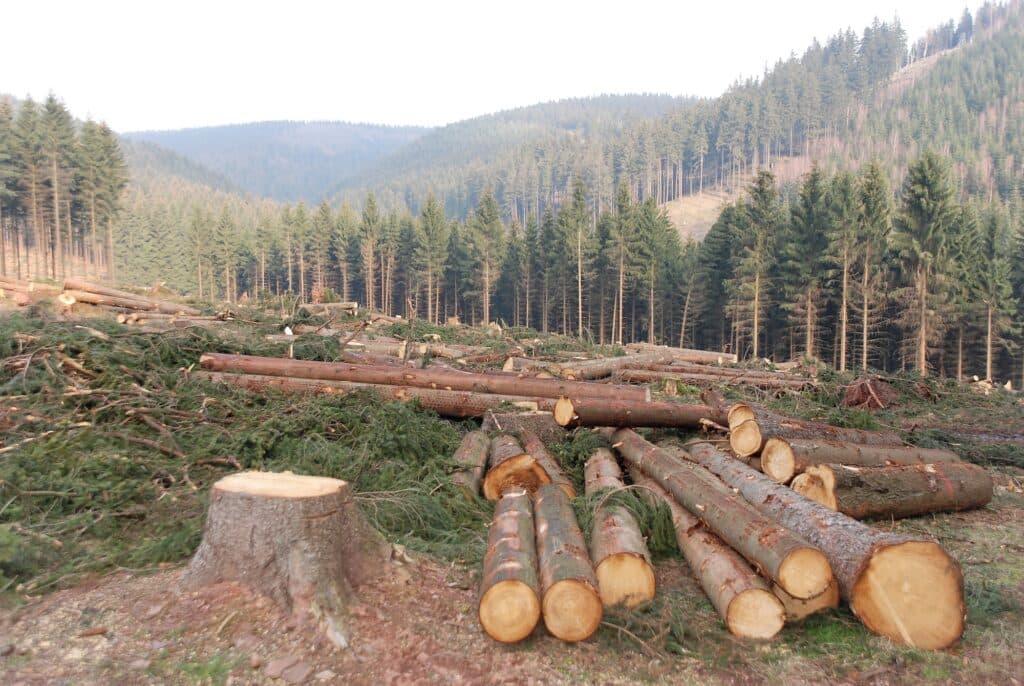We're loading the full news article for you. This includes the article content, images, author information, and related articles.
President William Ruto’s administration has lifted a nationwide logging moratorium, citing economic growth. However, the move sparks fierce debate and legal challenges amid concerns it undermines Kenya's climate goals and reverses critical conservation gains.

NAIROBI, Kenya – Wednesday, October 29, 2025 (EAT) – A contentious decision by President William Ruto’s administration to lift a six-year-old ban on logging has ignited a firestorm of controversy across Kenya, pitting economic imperatives against long-term environmental sustainability. The government argues the move will create jobs and bolster the economy, while environmental watchdogs warn it could erase years of progress in forest conservation and jeopardize the nation's climate commitments.
The original moratorium was instituted in February 2018 to combat rampant illegal logging and protect Kenya's five critical water towers, including the Mau Forest Complex. During the ban, Kenya's forest cover reportedly increased from 5.9% in 2018 to 8.83% in 2022, a significant gain celebrated by conservationists.
President Ruto has vocally defended the repeal, stating it is “foolish” to let mature and over-mature trees in state-owned plantations rot while the country imports timber and furniture. Announcing the most recent iteration of the policy shift on Monday, October 27, 2025, in Nakuru County, the President declared the move would revitalize the timber industry, create jobs for youth, and end the reliance on imported furniture, particularly from China. "We shall reopen the timber factories here in Elburgon," President Ruto stated, adding that timber from Kenyan forests would supply the government's Affordable Housing Programme.
Official data from the Kenya National Bureau of Statistics appears to support the economic argument. A temporary lifting of the ban saw timber sales from government forests surge from 159,400 cubic metres in 2023 to 618,800 cubic metres in 2024. The contribution of forestry and logging to the GDP subsequently rose from 1.8% to 2.1% in the same period.
Despite the economic justifications, environmental organizations have sounded the alarm. Groups such as the Green Africa Foundation, the Kenya Forest Working Group (KFWG), and the East African Wildlife Society (EAWLS) have expressed deep concern. They argue that lifting the ban, even if limited to plantation forests, could provide cover for illegal logging in protected indigenous forests, which are vital for biodiversity and act as crucial carbon sinks. "On one hand we are planting, on the other hand we are cutting, and I can assure you, the cutting will be more," John Kioli, Executive Director of the Green Africa Foundation, told The Associated Press.
Critics also point to the apparent contradiction between the logging policy and the administration's ambitious environmental agenda, which includes a pledge to plant 15 billion trees by 2032 to combat climate change. The United Green Movement Party, led by former Chief Justice David Maraga, described the decision as "a deliberate destruction of a key water tower" and questioned the lack of a public environmental impact assessment.
The path to lifting the ban has been fraught with legal challenges. An initial attempt in June 2023 was halted by the High Court after a petition by the Law Society of Kenya (LSK), which cited a lack of public participation. The court declared that lifting the moratorium without public consultation was unconstitutional, null, and void. It remains unclear if the latest directive will face similar legal hurdles.
In response to the widespread criticism, the Kenya Forest Service (KFS) has insisted that harvesting will be conducted sustainably. The agency stated it would be guided by a systematic plan to harvest a maximum of 5,000 hectares annually, limited to mature and over-mature trees in commercial plantations, with mandatory replanting. The KFS also noted that the decision was informed by a multi-agency inventory conducted between 2020 and 2022, which identified a large stock of aging trees at risk of decay.
The repeal of the logging ban places Kenya at a critical crossroads. The government's push for economic growth through the timber industry is a tangible goal, promising jobs and reduced import dependency. However, this policy directly conflicts with the urgent need to preserve the nation's natural heritage, protect its water sources, and meet its international climate obligations. As sawmillers prepare to re-enter the forests, the nation watches to see whether the promised regulatory oversight will be sufficient to prevent a return to the widespread deforestation that prompted the ban in the first place, or if short-term economic gains will come at an irreversible long-term environmental cost.
Keep the conversation in one place—threads here stay linked to the story and in the forums.
Other hot threads
E-sports and Gaming Community in Kenya
Active 8 months ago
The Role of Technology in Modern Agriculture (AgriTech)
Active 8 months ago
Popular Recreational Activities Across Counties
Active 8 months ago
Investing in Youth Sports Development Programs
Active 8 months ago